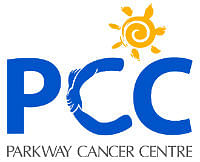
Being diagnosed with cancer can be overwhelming; the disease often evokes anxiety, anger, fear and other emotions. But there are ways to help you cope with treatment.
1. Get accurate information about your diagnosis
Gather as much practical and relevant information as possible about your cancer diagnosis by speaking with your doctors, nurses and allied health professionals. Information from the Internet or friends may overwhelm or even confuse you. Always turn to your trusted medical team for the right information and advice.
2. Keep communication open
It is important to be able to speak honestly with your loved ones, as well as your doctors and caregivers. It is perfectly normal to feel vulnerable but it is always easier to cope when you feel you can express yourself truthfully to those closest to you.
3. Allow your loved ones to help
Be open to receiving love and practical assistance from your friends and family. They can help with household chores, running errands, ferrying you to and from appointments and preparing meals.
Treatment takes a toll on your physical and emotional wellbeing, so learning to accept help from others goes a long way in helping you and your family cope. If you prefer to be left alone during treatment days, let your friends and family know.
4. Talk to others with cancer
Many patients find that talking to fellow cancer patients or survivors is helpful and inspiring. These conversations provide an insight into what you can expect during treatment and allow you to also empathise with others and provide a listening ear.
5. Psyche yourself up for physical, emotional changes
Speak with your doctor about the possible changes to your body so that it does not come as a rude shock if and when it happens. For example, hair loss is a common side effect of cancer treatment and doctors and the medical team can help you with useful information such as where to get wigs, hairpieces and overall skin care. There are also support groups and websites where information, support and even wig banks are readily available. Such physical and emotional changes can affect your work, relationships and self-esteem.
6. Maintain a healthy lifestyle
Embarking on a light exercise regime and eating healthily can help improve energy levels. Recent research has found that people who engage in some physical exercise during treatment cope better and may live longer. Do speak with your doctors on activities that you can pursue during your treatment.
7. Try to keep a normal lifestyle
When faced with a huge challenge such as cancer, planning a sudden and significant lifestyle change will seem overwhelming. Instead, you should start with small steps towards changing your lifestyle and seek to maintain as normal a lifestyle as possible. Slowly modify your routine over time.
8. Develop your own coping strategy
Different people have different coping strategies. Some pick up light exercises such as yoga or qigong, others meditate. You can also choose to keep a journal, draw, paint or embark on creative pursuits. Set aside some time to be alone, to recollect and consolidate your thoughts. The important thing is to make sure you stay relaxed as it rejuvenates your body, mind and spirit.
Source: CanHOPE. CanHOPE is a non-profit cancer counselling and support service provided by Parkway Cancer Centre.
Find out more about cancer and how to fight it on ST's Fighting Cancer microsite.
